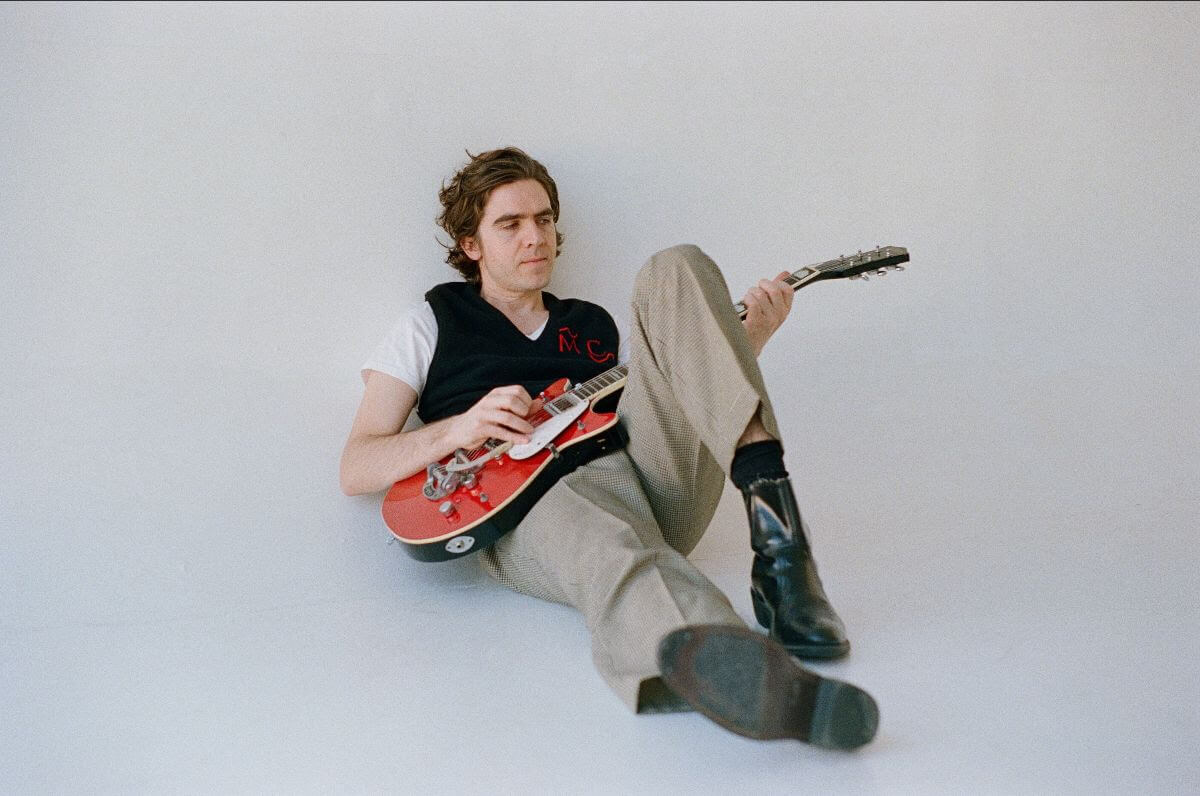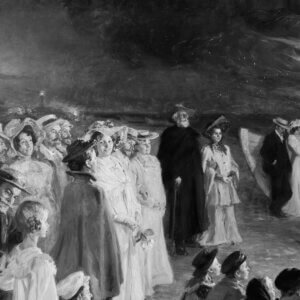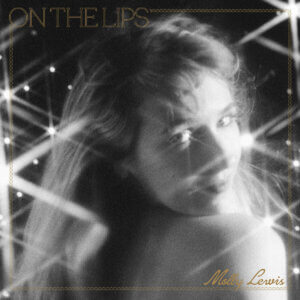Cut Worms’ Max Clarke Is Keeping Things Simple

Brooklyn musician Max Clarke went the self-titled route for his third full-length as Cut Worms, for no reason other than there was no reason.
“I tried to think of other titles, and tried to shoehorn it into some kind of concept, but it just isn’t that,” Clarke tells Northern Transmissions of keeping things simple, compared to 2021’s epic-in-length Nobody Lives Here Anymore. “Not every album is a concept album, to me…but it seemed like these were songs that represent some essential part of what I’ve been trying to do for all these years, now.”
Indeed, the latest Cut Worms release further refines Clarke’s love for classic, AM-dialing rock and roll. Take the record’s “I’ll Never Make It,” a dreamy doo wop ballad that conjures an idyllic, cheek-to-cheek slow dance — its subtle, slice-of-life music video portrays a pair of lovers enjoying a day at a local carnival. Elsewhere on the album, Clarke works through soft and tender thoughts above a mix of understated sunshine pop (“Use Your Love! (Right Now)”) and bedroom barbershop (“Is It Magic?”).
Then there’s “Ballad of a Texas King.” Cut Worms’ first single is a breezy, purple-sage-and-pedal-steel-coursing bop that sounds just as sweet as the rest of the record, up until you realize Clarke might be heading into murder ballad territory. That’s the grim vibe the songwriter was aiming for, he says, despite the lack of explicit lyrical bloodshed (“Step on inside that long black car…Show you the meaning of hell,” Clarke sings cryptically on the piece).
Speaking with Northern Transmissions, Clarke further weighed in on streamlining his songwriting process, wistful nostalgia, and the surprisingly low-stakes midway games you can play at the Staten Island carnival.
This interview has been edited and condensed.
NORTHERN TRANSMISSIONS: So, Cut Worms is a drastically shorter record than 2021’s Nobody Lives Here Anymore; the songs are generally shorter, too. How appealing was the idea of economy to you this time around?
MAX CLARKE: It was definitely a conscious decision. The last one was just so expansive that I wanted to reign it in a bit, and have a concise pill that was easy to swallow. Also, having shorter songs that were more conducive to playing live helps. Once I finally did get to tour that last record, I realized it’s exhausting to play so many six-and-seven-minute songs live.
NT: It’s perhaps easier to expand than subtract, that way. Like, these newer songs could potentially jam out in concert, whereas it might seem strange to give a longer song a serious edit.
MC: I mean, I’ve done that before. I’ve dropped a verse, just in the interest of [saving] time.
NT: Did the appeal of keeping things concise reflect the art you’ve been enjoying lately— like a light paperback novel, or short films?
MC: Maybe? Not that it was a conscious [influence], but I was reading a lot of George Saunders during the time that I was writing the record, mainly collections of his short stories. Maybe that was somewhat of an indicator, or maybe it was just a coincidence. I don’t know.
NT: How did that quest for brevity affect the songwriting process? Were the songs written or recorded any quicker than they had been in the past?
MC: I wouldn’t say it was necessarily any quicker. I always find some way to get hung up on something, and make it take a long time to finish. Sometimes the shorter ones, or the simpler things, are harder to pull off.
NT: Michael and Brian D’Addario from Lemon Twigs helped you out on a pair of tracks on the album. How did you meet those folks?
MC: I want to say we met back in 2016. I was introduced to them through Jonathan Rado from Foxygen, who produced my first record [2018’s Hollow Ground]. He was good friends with them, and had just done their first record, Do Hollywood. I’ve played with them on-and-off. We toured together, and they played in my band a couple times. We’ve just kept in touch.
It’s been almost two years now [since] I moved down to South Brooklyn, but they have a studio pretty much around the corner from where I used to live. So, I would go up to my old neighborhood and do sessions with them. It’s always a riot working with them.
NT: What’s their vibe like, as collaborators?
MC: Very energetic. Lots of ideas. I just try to keep up.
NT: What’s the background to the album’s first single, “Ballad of the Texas King”?
MC: I’d had that melody for a while. I think that it had evolved out of an early version of a different song from the last record. I came back to this melody, though. The day before we were going to record this in upstate New York, I had this idea for a murder ballad kind of thing. I don’t know where that came from.
NT: Is there anything explicitly grisly in this song?
MC: No, not really. [One] of my favourite [aspects of] horror is that it’s [sometimes] what you don’t see or hear that’s scary. It probably doesn’t come across in the song at all, but that’s what I was thinking about.
NT: Basing this off the last line of the song, how many times do you think you’ve personally done the drive from Paradise, Texas to El Paso, as a touring musician or otherwise?
MC: More times than I can count.
NT: Driving pops up a few times on the record, like on “Let’s Go Out on the Town,” for instance. What
appeals to you about being on an open road?
MC: Everybody likes drivin’, I think? You get out there, [and there’s] the freedom of where you could go. All the places you could go! It feels like a pretty American thing: cars, driving, rock and roll. It’s all pretty entwined.
NT: Was the first car you drove an American classic?
MC: I think it was a Chrysler Sebring. I don’t know if you’d call that a classic car, but it did me right for a little while.
NT: The album’s “Living Inside” has you considering a change of seasons — the unstructured freedom of the summer giving way to the school year, in this case…
MC: That time of year always makes me sad. Maybe [it stems] from being a kid, and the summer ending. I’m from Ohio. The summers were not very long. It’s winter most of the year, or at least bad weather for eight months. You only get two solid months of really nice weather, [and then] when the humidity and the intensity of the summer drops out…
It’s just like any other thing. As you’re getting older, birthdays and New Years start getting a little sadder.
NT: “I’ll Never Make It” has a sweet little video, a quiet love story at a carnival that, in turn, reveals magnitudes. Was that a meticulously planned shoot, or did that parking lot fair just happen to be in town?
MC: Well, my partner Caroline [Gohlke] directed it. I sprung it on her last minute. She came up with that whole concept, and there happened to be a carnival that we scouted out in Staten Island. We pretty much just showed up and asked them if we could do it, and they were like, “Sure!” They didn’t really care, which was great.
We shot there for two days. One of the days was actually the beginning of that whole smoke thing [ed. the Ontario wildfire smoke that blanketed New York in June]. The second day there, the smoke was rolling in. You could smell it. It actually posed a bit of a problem for the shooting, because the second day looked a bit orange on film.
As far as the story goes, I liked it. It was just kind of a simple, sweet thing. There’s something nice about doing something nice! It doesn’t always have to be an ironic, snarky, post-post-modern, self-aware parody of something.
NT: Do you have a favourite ride at that kind of fair?
MC: They didn’t have it at this particular one, but it’s the big swinging boat. At the local carnival that I had in Ohio it was called a Pharoah Boat, though sometimes it’s called something different. I always like a Ferris Wheel, though; they had one of those.
NT: What was the last prize you’d won at a carnival midway?
MC: We needed some toy props for the video. I was going to try and win something, but the way that had it set up is that they don’t even give you the option to win something. You just pay for [a prize in advance], and then you play the game. I don’t know if it’s just the whole ‘everybody’s a winner’ kind of thing, but it takes a little bit of fun out of it.
Pre-order Cut Worms by Cut Worms HERE
Latest Reviews
Tracks
Advertisement
Looking for something new to listen to?
Sign up to our all-new newsletter for top-notch reviews, news, videos and playlists.









